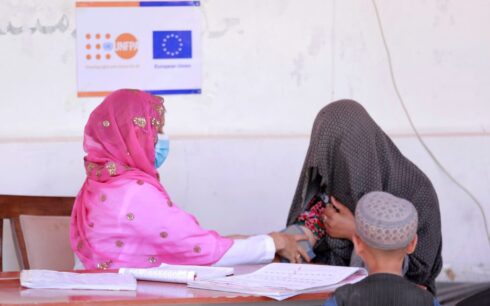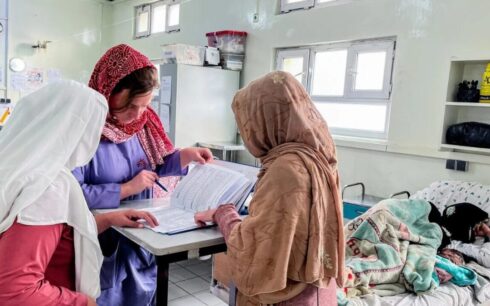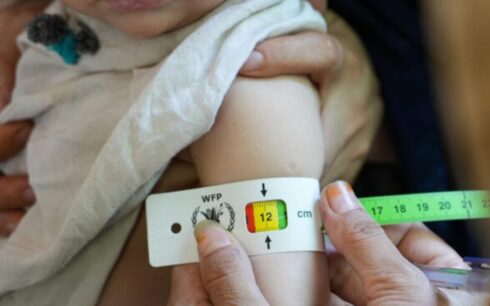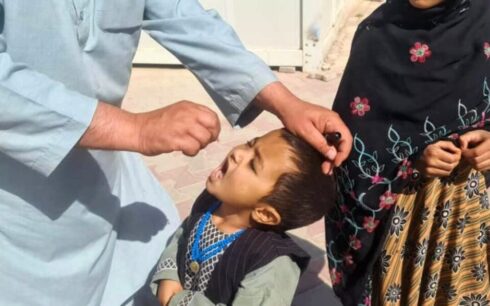Cries of sick babies fill every corner of the pediatric ward at the overcrowded Indira Gandhi Children’s Hospital in Kabul and filled to capacity, 40 children have been admitted in the ward, each bed accommodating two to three children.
Seven-month-old Ibrahim sobs in his mother’s lap. He is restless, and his mother, Gul Bibi, softly wipes his tears but is unable to comfort him. Ibrahim has pneumonia; he is one among 50 children being treated for an acute respiratory infection ward, UN Children’s Fund (UNICEF) reported Tuesday.
“Ibrahim has been sick for over a week now. He has a fever, cough, diarrhea, and an ear infection. First, we took him to Logar Provincial Hospital. After they treated him there for three days, his condition was not improving. The doctors told us to take him to Kabul,” said Gul Bibi.
Gul Bibi traveled three hours from her village, Maikhail, in Logar Province, to Kabul, seeking urgent treatment for little Ibrahim. She had to change taxis four times to reach the hospital; each fare weighed heavily on her. Like most in Afghanistan, her family has limited resources and mainly depends on agriculture for income.
“This year, the winter is bitterly cold. We struggle to heat our home and keep our children warm. I have five children, and there is often insufficient food to feed them. My child’s illness is an added burden on us,” she said.
Afghanistan has been hit by one of the coldest winters in decades with temperatures plummeting to minus 35 in places. This, says UNICEF, has led to an increase in the number of acute respiratory infections in the country.
According to the agency, more than 25,000 cases were reported in December 2022 – double the number of cases reported in December in the last three years and children under five make up 65 to 75 percent of the total number of cases.
As Afghanistan faces a severe economic crisis, families are finding it increasingly difficult to afford adequate heating, causing cases of pneumonia to rise among children. Already weakened by years of deprivation, children across the country are increasingly vulnerable to disease and illness due to the deadly combination of rising malnutrition, an unprecedented food crisis, and crippling winter weather.
UNICEF states that according to its estimates, around 900,000 children under the age of five are believed to suffer from severe malnutrition and 2.3 million children from moderate to acute malnutrition.
Dr. Shir Mohammed, the pediatrician at Indira Gandhi Hospital, attributed the economic crisis to the rise in respiratory diseases among children. “The overall economic situation in the country is bleak. People are struggling to feed their children and keep them warm. They burn wood, clothes, tyres, and plastic to warm their houses.
“Malnutrition, food crisis, cold weather, and air pollution are underlying factors behind the increase of acute respiratory infections in children,” he said.
According to UNICEF, a record number of 110 children with acute respiratory infections were admitted to the ward last week. Almost half of them are still receiving treatment for pneumonia and viral bronchitis, severe pneumonia cases were referred to the hospital’s intensive care unit (ICU).
Dr. Mohammad Azim Latifi, an ICU specialist at the hospital, has been monitoring 10 children in the ICU, five suffering from acute respiratory infections and respiratory failure.
“All five children with severe pneumonia admitted here are under five. The increase in the number of ARI cases is adding a burden to our limited ICU capacity,” said Latifi.





